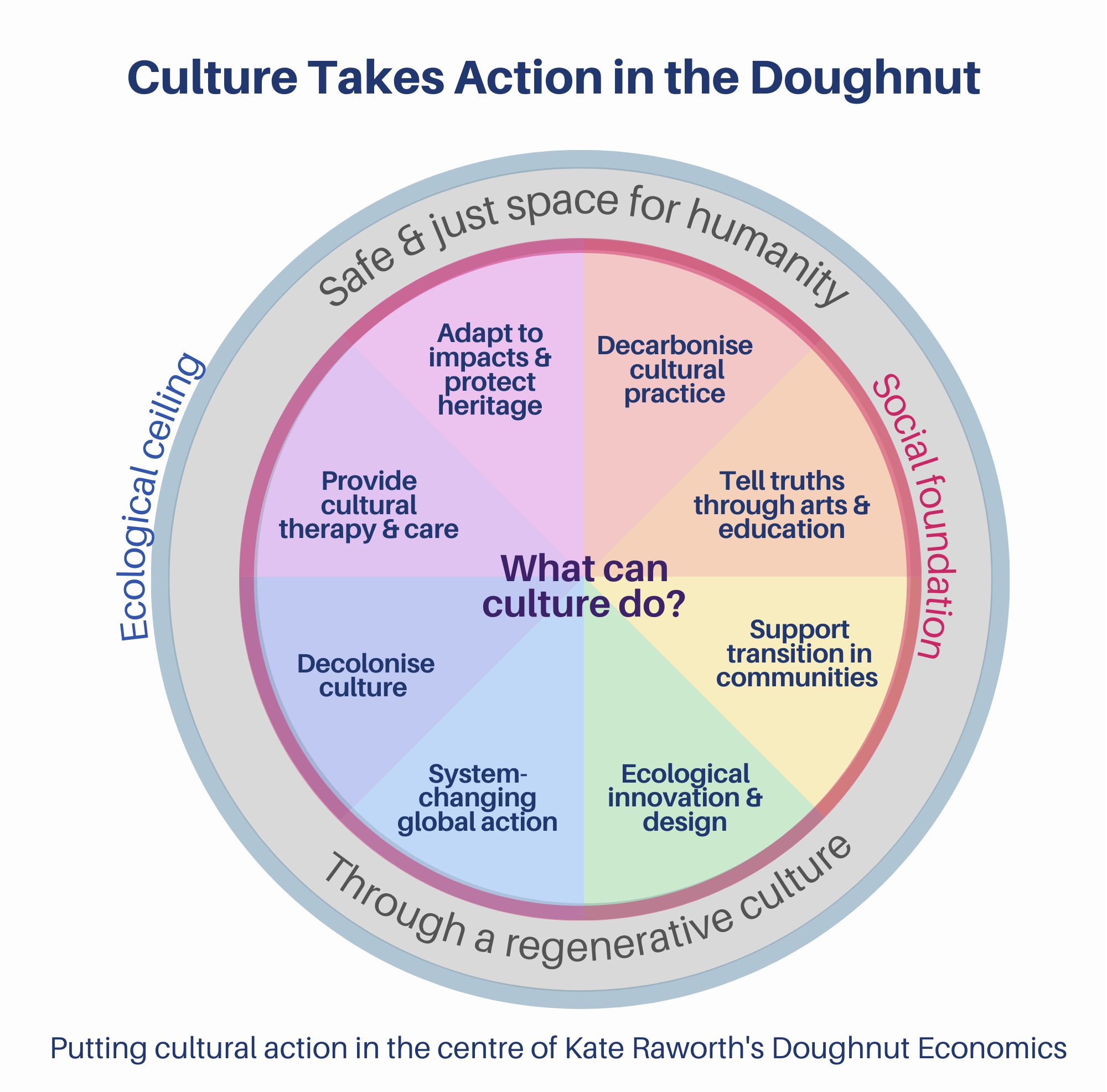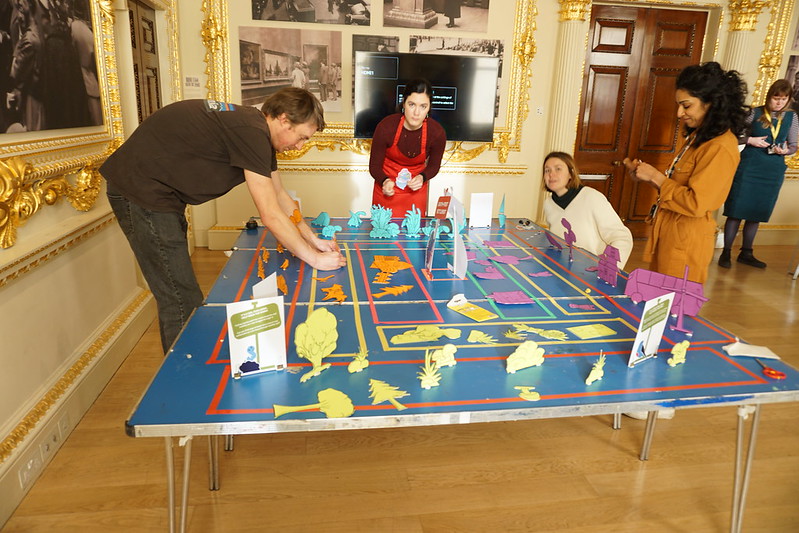Do you often hear people saying something like this…?
“Most people are not able to think about the climate or take environmental action because of economic pressures and other worries on their minds.”
Here are a few things you might say in response:
- This is a meme. It draws on truths and a lot of suffering. But versions of this quote well up from a story that is propagated to sow division and increase apathy.
- Yes, it’s true that economic inequality limits people’s capacities to act and collaborate, and is part of the injustice we must be tackling together. Looking globally, the richest 1% are responsible for 15% of emissions, whereas the poorest 50% are responsible for 7% and are bearing the biggest impacts. The emissions gap is now bigger within countries than between them, due to unequal consumption.
- Traditional human cultures have evolved to take environmental action, or in other words, to optimise the natural world around them so that their children can continue to benefit from it. This meme points to an indictment of the current economic system (capitalist and exploitative — and degenerating all the time) that people are prevented from taking care of the health of their bodies, their neighbourhoods, and the biodiverse species and the climate system they depend upon. Taking care of these things feels right and good. Instead, people are forced to labour within the harmful system as public services are eroded and the cost of living goes up and up. It is hard to act against this system as people fear losing work and social acceptability.
- Environmentalists are not calling, all the time, for all individuals to take action. They are calling for systemic changes, such as legal protections for nature. When this meme is consciously spread, it is by those who profit from the current system, who often characterise environmentalism as individuals being forced to make lifestyle changes, often using derogatory terms such as ‘eco-nazis’. They generate this story of repressive environmentalism to create a sympathetic movement for their cause of liberty to exploit and profit.
- Systemic changes can be made that tackle both inequality and environmental harms. For example, wealth taxes and corruption measures would limit the consumption abilities of those who are creating the most emissions and damage. Loss & Damage payments from wealthy polluting countries to the Most Affected Areas and People are now written into the climate process. But this Reparative approach needs to be more rapidly carried out and widespread e.g. not just about carbon emissions but about ecocidal land use.
- System change can come from the ground up. Regenerative practices are intended to serve people as much as ecosystems. Environmentalists are working more and more in places, weaving projects that create the means for all people (and other beings) to thrive together.
- Even if people don’t collaborate in communities, there are many ways in which domestic environmental action (i.e. our diet, energy, purchasing and transport decisions) save us money and improve our wellbeing. It can be multi-solving. Buying less stuff (such as fast fashion) is the most obvious place to start. Insulating your home and switching to renewable energy costs less, is less polluting for human health, and it helps the climate. Vegan & vegetarian diets are one third cheaper. Cycling is much cheaper than driving cars, and can get you to places quicker, improving your health.
- However, to return to the systemic issue, these choices are not always easily within people’s gift because of factors such as advertising, the non-availability of fresh vegetables, the cost of installing domestic renewables or the lack of road safety measures. Time spent labouring for others reduces time for things like mending, cooking or taking slower transport. For example, the lowest income households, increasingly in the developing economies, are encouraged into or limited to buying highly processed food, including meat and dairy, that costs much more. (I read this story a few days ago, but can’t find the source of a recent study…)
- Developmental projects such as new roads, factories, ports or dirty power stations are often justified by the claim that they meet the needs of economically challenged people by providing jobs and cheaper resources. But, they fail to account for harms on biodiversity, climate, or human health which then have a worse knock-on effect on the economy. Harmful developments in the end and all together lead to more expensive food, more extreme weather that damages infrastructure, more time missed from work, more time spent commuting and so on.
- Why do people have other worries on their minds than the worry of how to overcome the challenges and future insecurities created by inequality and ecological harm? Maybe these are the worries on people’s minds but immediate issues stop us from seeing the big picture, a) because it is complex and b) because the beneficiaries of the sytem don’t want us seeing what is simple. Systems are sustained by stories. Large media companies are owned by extremely wealthy people who profit from the lobbying and support of those who want to maintain this system, which in turn enables them to extract, exploit and pollute. The mainstream media reacts to emergent crises and fails to investigate slower systemic crises. It picks up on memes such as ‘eco-warriors are elitists who don’t care about ordinary people’. It fails to report stories such as the one that ambulance drivers deny the UK Government’s claim justifying anti-protest laws that environmental protests disrupt ambulance services. It advertises products that cause harm and creates no editorial space for tactics such as degrowth, bioregionalism or commons-based alternative economies.
- People do support environmental measures despite the cost of living crisis. This research by CAST shows that public support for climate policies has not diminished and that some policies are universally supported.
- What shall we do about it, then? (How do we work to create more agency for people to use and increase the means available to them to ensure a safe and just world for themselves and future generations?)
Here are a couple of tools to engage people with these issues:
Messaging This Moment — a communications toolkit on how to ensure climate and nature are not sidelined in the cost of living crisis.
People Take Action toolkit — a Climate Museum UK tool used in workshops to expand people’s sense of what actions are possible within the constraints of their lives. You can download the toolkit to run your own workshops.




